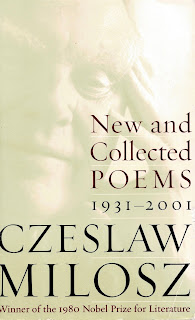Poet's Choice
JANE MAYHALL
You think death is a
nostalgic passivity;
wrong.
I'VE BEEN
DEEPLY moved by the love poems-urgent, ravishing, grief-stricken-in Jane
Mayhall's exceptional book Sleeping Late on Judgment Day. These thirty-eight
poems, which constitute the second section of Mayhall's collection, celebrate
her long bohemian marriage ("the bond of mystery") to Leslie George
Katz. They seem poured out in a torrent, in a sudden rush of memories. At eighty-five,
Mayhall has broken through a wall of silence and transformed the oceanic depths
of feeling into the faithful nuances of art.
There is
something wild and untamed in Mayhall's unsentimental memorial poems. She
refuses easy comforts, false generalities. She, is not seduced by sadness but
overwhelmed by loss, ferociously recalling how her husband grappled with heavy
medication and physical pain, with what in the poem "Paean" she calls
"the crucifixion of dying":
Not even
doctors or poets were equipped to see the courage
and
congestion, as if the body were a whole
city, in
surges of wisdom and tragic scrutiny. Between
bouts of
morphine and enforced
daze, he was
steady. As well maintaining
desire in
the corrosion of hospitals.
Thus counselors
(protected by the rind of comic
distance)
said, "Nothing's that serious."
No doctrine
or bias can give
the glory to him. That from every portal,
the humble
unreduced light outside, putting to flight
all
generalities, siphoning the sun; the room,
his
consciousness, I'll break
my mind to
tell of
There is
something holy and crazed about an intensely personal grief "My thoughts
sway into violent, / black somnambulant, cold death / supplying the madness of
your gone," Mayhall declares. But she also refuses to obliterate the agony
of consciousness. The temptation is great ("Your absence is / a need to
close my eyes"), but she doesn't Want to numb or medicate her pain, to
sleep it away. "Don't let me dream, doze and deny," she says,
"like / a TV slob." Yet she feels no better off for waking. Elsewhere
she defines love as "walking on broken rocks / where nobody goes."
Mayhall also refuses to let death be "the consummation
of us." She is left alone, unguarded and inconsolable. "I am the
slave of my ardor, no-body / knows your quality as I, who / sprang to your
need," she recalls in one poem. "Our joy was Eden," she
concludes in another. "But when you died, it was insane. / / And nature
didn't save us." The only anodyne is ardent creative work, the solace of
making art, of defying time.
PAINKILLER
Ardent work
is a painkiller,
like just
your handwriting on a page,
and doing
mathematics-that connects with central
neurological
tracks, vast circulatory blood-
lights, into
aphrodisiacal
forgetfulness.
And the more aching a line
of poem, the
more it lulls.
Intense
dancers on broken toes
insist they
never noticed. Like Tchaikovsky
using his
tears on laboring music scores, the
melody
narcotic. Or running the good
race eludes
the hurt.
Mind over
matter? It's the brandy gift
of life. Or
from a crack in Nothingness-
creation of
the world. And must have
been some
backbreaking,
godless job.
Enormous, long time
over-hours.
Working like a dog, that
sweet
analgesic postponement
of the End.
Edward
Hirsch: Poet’s Choice



Comments
Post a Comment